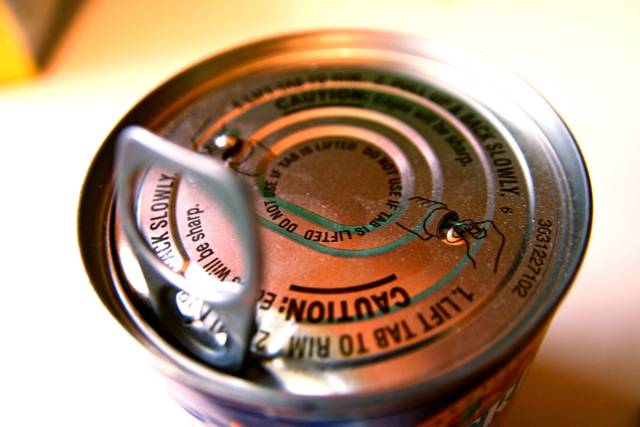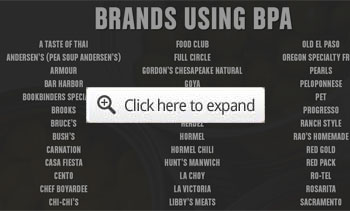
Common Food Brands Still Use BPA in Their Canned Goods
It’s widely known that bisphenol-A (BPA), an endocrine-disrupting chemical, is used in plastics, and as a result it’s been removed from many baby bottles, water bottles, and other plastic products.
Lesser known is the fact that BPA is also used to make BPA resins, which keep metal from corroding and breaking. It coats about 75 percent of cans in North America, which means if you eat canned foods, it’s likely a major source of BPA exposure for you.
June 17, 2015 | Source: Mercola.com | by Dr. Mercola
It’s widely known that bisphenol-A (BPA), an endocrine-disrupting chemical, is used in plastics, and as a result it’s been removed from many baby bottles, water bottles, and other plastic products.
Lesser known is the fact that BPA is also used to make BPA resins, which keep metal from corroding and breaking. It coats about 75 percent of cans in North America, which means if you eat canned foods, it’s likely a major source of BPA exposure for you.
In one study, eating canned soup for five days increased study participants’ urinary concentrations of BPA by more than 1,000% compared to eating freshly made soup!1 Even as the health risks surrounding BPA have become too many to ignore, food manufacturers have been slow to remove this chemical from cans – and even if they do, you’re still not in the clear…
75 Common Food Brands Still Use BPA in Their Canned Products
The Environmental Working Group (EWG) analyzed 252 canned food brands in 2014 to reveal whether their cans are coated with a BPA-based epoxy lining. Seventy-eight brands are still using the chemical including those listed below:2
Why aren’t more food companies removing this toxic chemical from their products? The industry trade group the American Chemistry Council has continually insisted that BPA is safe, and has opposed both state and federal legislative proposals to ban the chemical.
The US Food and Drug Administration (FDA) has also supported its safety, and in 2014 issued an official announcement in reaffirming BPA’s “safety.”3 The decision came after a review of 300 studies, even though more than 800 academic studies have concluded BPA may harm reproduction and development.4
Why did the FDA only review 300? And if there are 800 showing developmental harm, how is it that they managed to pick 300 that fail to make such a connection?
These are questions that remain to be answered, but one piece of good news from EWG’s report is that 31 brands now use BPA-free cans for all of their canned products.

